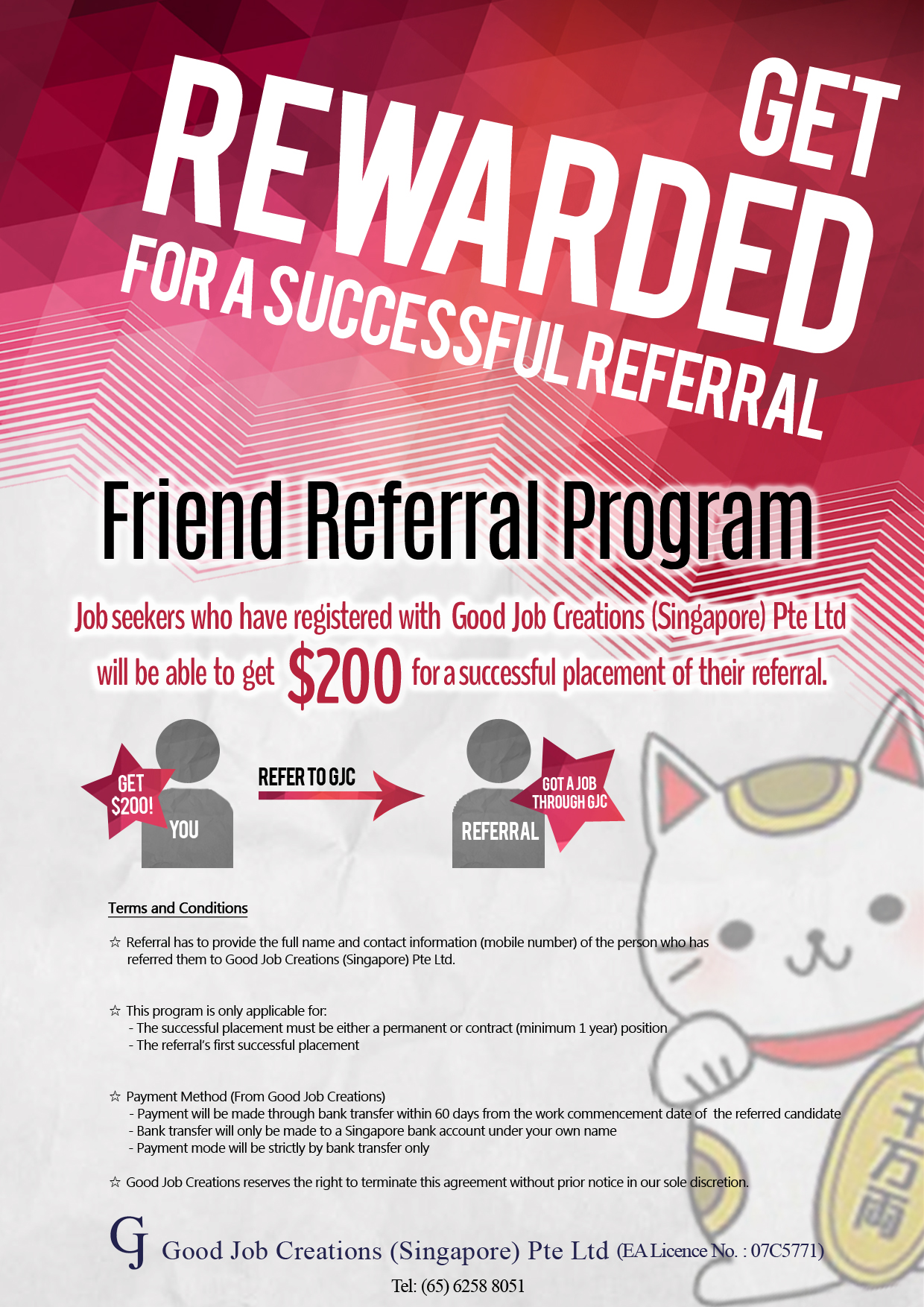#Voicesof…Elaine Lim: Redefining Sales & Managing People

Despite a thriving decade-long career at the bank, Elaine Lim made a bold career switch into Recruitment with a passion for helping people find meaning in their jobs. Seventeen years later, now in a Managerial post handling three different portfolios, she’s still actively impacting the lives of those she encounters.
1. Why did you leave your career in Banking (non-sales role) for recruitment (sales role)? For context, some people have formulated negative impressions of salespeople: they’re only focused on closing a sale regardless of the method. As a sales-experienced individual, how can you help them see a recruiter differently?
When I left Banking to join the Recruitment industry, I thought the role was about helping people find jobs, without knowing it was a sales job—to say it took me by surprise was an understatement. However, salespeople are viewed negatively because they’re perceived as aggressive and pushy, trying to sell products or services people don’t need or want. Some might even resort to unethical means, even if it involves stretching the truth or outright lying about a product or service, further fuelling ill perceptions towards them.
Recruitment revolves around more than just sales. What’s crucial here is to understand the needs of our clients and candidates, whether it is finding the ‘right’ talent that potentially aligns with what clients are looking for and jobs for candidates they can find meaning and growth in. Being authentic in all my conversations with both parties builds trust and fosters respect that results in lasting connections. The goal of making a sale should ultimately be a transformation you create in the buyer’s life.
“The goal of making a sale should ultimately be a transformation you create in the buyer’s life.”
2. Can you elaborate on ‘finding the right talent that potentially aligns with what clients are looking for’? What is this significance, and does it give people better lives and opportunities?
Every company that desires growth has a vision, mission, and goals. Our role as recruiters is to find talents willing to align with a company’s directions and values and those who desire to contribute to the company’s success and expansion. But this can only be done when talents understand what is expected of them; knowing and understanding makes it easier to contribute through their skills and experience with the right mindset.
Recruitment is essential as it ensures a proper fit; it contributes to societal well-being and economic growth by creating job opportunities and enhancing people’s lives. Recruiters are driven by the impact of their role in shaping individuals’ careers and companies’ success, making recruitment a rewarding profession.
3. How do you manage your client relationships and team members over the phone and face-to-face to provide exceptional recruitment service?
I take pride in effectively communicating and facilitating productive interactions between my team, clients, and candidates. My role involves connecting with clients and candidates and keeping them updated on the progress of recruitment or interview. Understanding the needs of each stakeholder and fostering positive relationships for each required me to build a strong foundation through mutual understanding, showing interest and responding appropriately without unnecessary jargon or lengthy explanations.
I cannot stress how important it is to harness and build on people skills; it has helped me positively interact with stakeholders, promote more robust relationships, and significantly improve its dynamics. People skills involve interpersonal and social aspects, cultural and emotional intelligence; respecting and understanding that we all have differences in character and values and seeing and doing things differently, but ultimately honouring every relationship that comes my way.
4. Statements like ‘people are now pickier with the kind of work they do now’ seem to be louder since the pandemic, especially when more people are about work-life balance, and some prefer to work remotely. What are your thoughts on this?
The pandemic has indefinitely rewired the traditional work model, and working remotely is time, energy, and even cost-saving. It allowed people to structure their day-to-day life, be more productive and supposedly enjoy a better work-life balance, but such an arrangement has drawbacks.
Some might encounter more considerable interruptions: missing lunch hours, never-ending work piles and meeting calls, and longer hours of working compared to office hours. The lack of discipline could also result in poor time management and efficacy. Personally, I prefer to work in the office as it provides a better environment for face-to-face communication, collaboration, and overall productivity and efficiency, whereas working remotely lacks the personal touch most of us need as colleagues. Of course, this can’t be the same for all; some might find it a blessing, and some might think otherwise.
5. As the manager handling three portfolios, how do you approach and manage your team’s key performance indicators (KPI), target achievements and mentorship?
Firstly, to manage my teams’ KPI and target achievements, I set clear expectations and directions that make sure we’re always on the same page. Throughout my leadership journey, I emphasise and prioritise essentially on open communication—communicating what’s expected and required of my team gets them one step closer to their goals. Next, I encourage my team to manage their time effectively by completing important and urgent tasks to make time for productive work.
I firmly believe in leading by example by demonstrating to my team how to resolve an issue and making helpful suggestions to cultivate confidence and independence within everyone while also listening to their needs and concerns. This creates trust, respect, and accountability within our team.
 Photo by krakenimages on Unsplash
Photo by krakenimages on Unsplash
6. What traits should people learn and adapt to keep up with the evolving cultural and business landscape?
The constantly evolving culture and business landscape is a cry for continuous self-improvement and professional development. Technological changes, globalisation, societal norms, and market dynamics should be enough to drive people to stay curious and be updated with the times.
I want to stress how important it is to nurture the ability and willingness to adapt and demonstrate flexibility in learning new processes, knowledge, and skills, use tools and resources and improvise methodologies to keep up with these changes. Take every opportunity to share and exchange ideas, insights, and knowledge; collaborate and build on relationships that spur and encourage continuous growth.
7. As a recruiting expert, what is your definition of a ‘top talent’, and what strategies and methods do you utilise to attract and identify them?
Recognising top talent during a candidate search involves assessing a combination of factors. This includes candidates’ skills and experiences, the presentation and content of their resumes, and their personality traits. Talents as such are identified through their interview performance, problem-solving abilities, cultural fit within the company, commitment to ongoing learning and potential for leadership. However, the emphasis on each factor varies depending on the specific role and organisation.
Some of my strategies and methods to attract talent includes (but are not limited to):
- Building a strong employer branding strategy helps to create awareness and stand out from the competition.
- Employee referral program that allows employees/candidates to refer their friends or connections and at the same time be rewarded. This motivates them to refer qualified candidates.
- Using social media platforms to attract talent and crafting targeted job posts.
- Sharing about the benefits or perks of companies: unlimited GP consultation, shorter core working hours, culture, and team environment; elaborate on the opportunity for career growth, progression, and incentives.
Interview by Destiny Goh
Marketing Communications Executive

